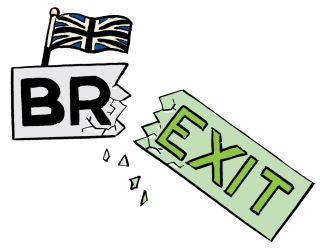Brexit will hit low income households hardest

A central theme of Budget 2020 has been the possible threat of a hard-Brexit at some stage in the months ahead and the implications this will carry for Ireland.
While we welcome the allocation of resources in the Budget to a fund that will be available to assist those most impacted by a hard-Brexit, we regret the lack of focus on the impact that this event would have on the living costs and living standards of low income households.
An ESRI report, from March 2018, highlighted the dependence of the Irish consumers on imports from other states. In particular, it noted the concentration of UK imports on household expenditure in areas such as food. In the context of a hard–Brexit, where World Trade Organisation tariffs would automatically apply to imports from the UK, it found that consumer prices would rise by between 2% and 3.1% and this would raise the cost of living for average Irish households by between €892 and €1,360 a year.
However, the report also noted that these increases would be “very unevenly distributed across households” with lower income households, who spend a higher proportion of their income, being most exposed.
Among the products identified as most prone to price increases, food expenditure was highlighted as the expenditure category most exposed. It would experience some of the heaviest post-Brexit tariffs and the current structure of the Irish food market (supermarkets and food outlets) is one that is very exposed to imports from the UK.

The chart above uses data from the CSO’s Household Budget Survey to illustrate the exposure of households across the income distribution to changes in food prices. It shows the proportion of total household expenditure on food. On average, Irish households spend 14.7% of their total expenditure on food. However, food represents a much larger proportion of all spending among the households in the bottom 40% of the income distribution standing at between 17% and 19% of total expenditure.
A sudden increase in consumer food prices, which would be unavoidable in the context of a hard-Brexit, will hit these households hardest. They are also the households with the lowest capacity to absorb such impacts on their living costs. Even in the context of a negotiated departure of the UK from the EU, the absence of a customs agreement may push consumer food prices higher and have a less severe but similarly distributed effect.
Social Justice Ireland believes that Government needs to widen its consideration of those who would be impacted by a hard-Brexit. Should it happen, low income households will need supports to absorb the living cost increases they will inevitably face.

GIVING A VOICE TO THOSE
WHO DON’T HAVE A VOICE
When you support Social Justice Ireland, you are tackling the causes of problems.
